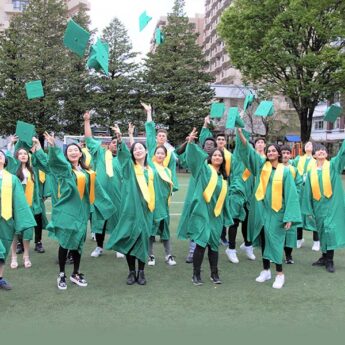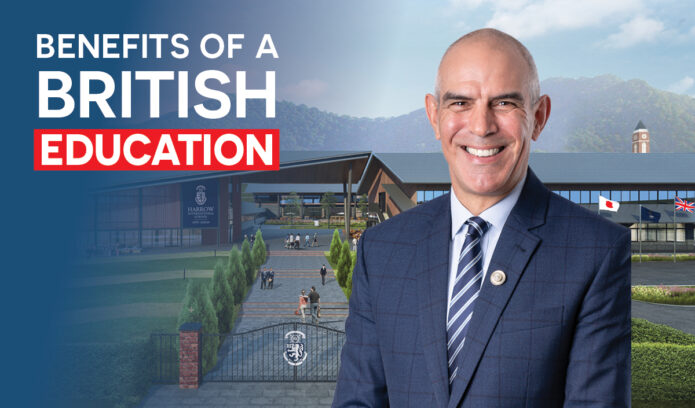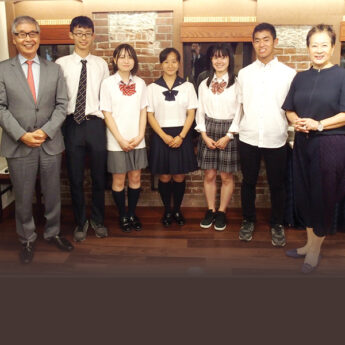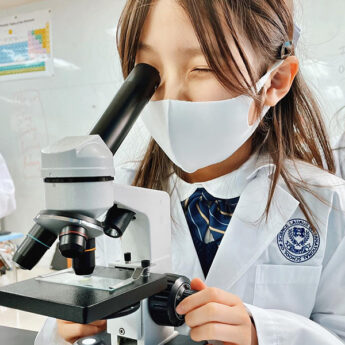How are schools preparing children for the future—when change will be rapid and technological innovation even more so? What jobs will exist?
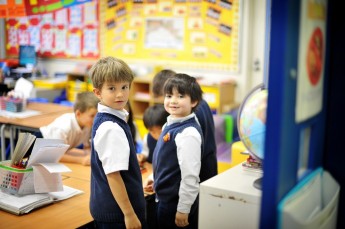
Pupils from the British School in Tokyo’s Shibuya campus.
The evolution of new careers and industries is inevitable, so how can schools really prepare students for this future? What skills will the adults and workforce of upcoming decades need to not only be effective and economically satisfied in their respective workplaces, but also solve the global challenges the future will present?
Sir Ken Robinson, a world-renowned speaker on education, has considered some of these questions and talked about “the need not for school evolution, but for school revolution”.
He has discussed how schools of the future will have to create conditions in which children are encouraged to find their innate skills and passions, maintain their creativity and celebrate who they are—so that they might be their most authentic selves.
This is an exciting prospect, and in many ways international schools have a head start, particularly those based in Tokyo, where innovation, individuality and creativity can be readily seen walking the streets. International schools by their very multicultural and global nature, can enable children to have a range of contextually rich and relevant experiences that open their eyes and ears to the experiences of others and worlds beyond their own immediate family and culture.
But how can we ensure that children are being exposed to a high quality learning experience while developing a sound perception of themselves and their creative potential?
One key factor is the personalisation of enriched learning experiences. Children develop at different rates and need to be knowledgeable about what they are achieving and their next areas of development. The close tracking and analysis of individual progress, combined with purposeful written and verbal feedback, enables schools to ensure that children benefit from each experience and become reflective in their thinking and approach to their own improvement. Personalisation provides a supportive framework and clear path to sustained progress and improved attainment, while enabling children to explore and extend their talents both in and outside the classroom.
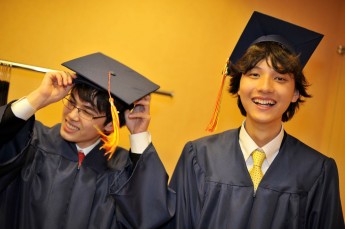
The British School in Tokyo’s Year 11 graduated in June.
Another factor is the rigorous acquisition of key skills. Whatever the future holds, the global workforce will still need core skills. Literacy, numeracy and technology skills transcend traditional subject boundaries. The core curriculum of schools now and in the future must require and maintain high standards in core areas.
For children to access, explore and communicate their creative ideas and innovative solutions, they need to be able to articulate and process both linguistically and numerically. It goes without saying that the future will depend on technology, and that the continuing expansion of the use of technology in learning situations, therefore, is vital.
Embedded within the personalisation of learning and the development of key skills, school curricula must have at their core the personal, social and emotional development of their pupils. We are already seeing the impact social networking is having on the global workplace.
Children need to be formally and informally learning about how to interact with others in a positive and constructive way. They must be aware of the implications of their actions, as well as develop an awareness of both their own contribution to interactions and their own core values. Schools must find ways for pupils to be involved with the community and society, learning and demonstrating appropriate social behaviour and learning how to take responsibility.
Children of the future will need schools to make a difference, more so than at any time in the past. Schools must inspire and galvanise children, encourage them to become individuals who challenge themselves, who look outside the box, who socially network, see links, innovate and think for themselves. They must help children become adults who truly have a love of learning and a passion for finding and harnessing their innate strengths—whatever they are.
Above all, schools must help children become people who are determined to succeed, relish challenge and seek solutions wherever they may originate. Children of today must be prepared to become the innovators of tomorrow.
The revolution has begun, here in Tokyo!
